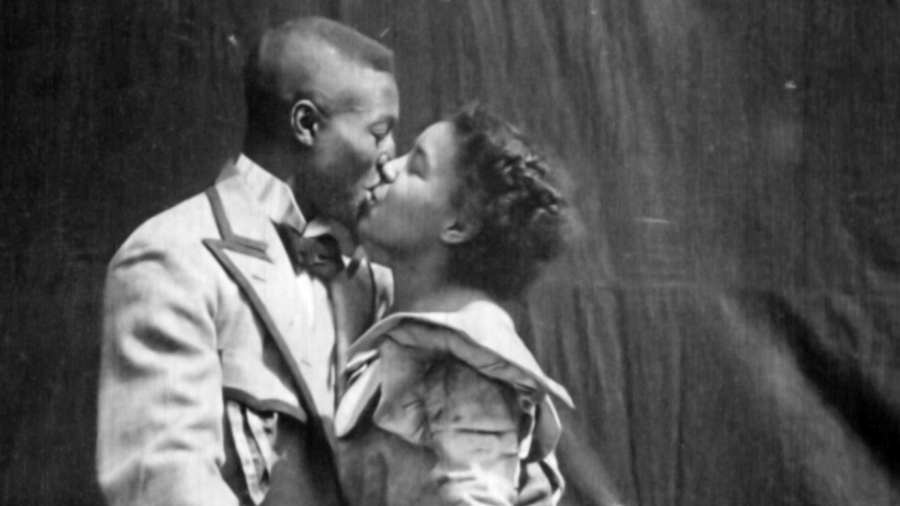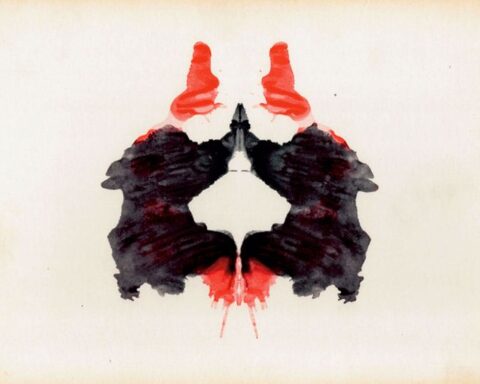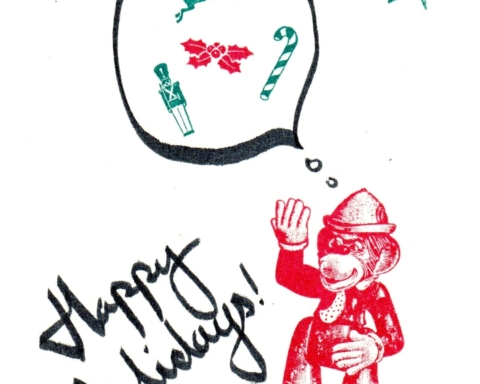For Saint Suttle and Gertie Brown
Evidence of things seldom seen
emerging from the past
of ropes and bending boughs,
threats that happened
for even talking back, man or woman,
and of black marias making mischief with
dark room cut-ups for only thirty seconds
to a minute or two for the nickelodeons.
A blind over anyone’s eyes
against the truth of seeing
real life.
Something else going on.
Negroes kissing. Imagine that.
Three times they kiss,
swap spit, or touch teeth,
barely the tongue, and embrace
bashfully. They enfold us.
She slaps him playfully.
Affectionately. Nearly slapstick.
But not quite vaudeville.
Do they wonder how long should they hold it?
Are they taking direction,
scripted, or improvising?
From who they have been
and what they have heard
are they simply catching a breath?
When tenderness was something innocent
and not just a livelihood?
Something else going on.
Are their eyes shuttered
in bliss after each kiss?
Or open to miracles
awakened? I cannot tell.
Nothing hinting at fidelity,
not even a promise to return
elsewhere beyond that length reeling out.
Just enjoyment, fleeting but appealing
to anyone who could be shy
or who could be goofy at the moment
of connection,
instead of just manly or womanly
as the stories and the poems—
those textbooks—say.
And what would that mean
among the shades of gray and white
ruffling her collar,
in the oiled crinkle of his close-cut hair?
The shine of their giggles, though,
strikes flint
before the advent
of Ipana and Pepsodent.
(Did they know each other?
Were they a team,
for more than a moment?)
Hence their ease. Their artlessness
with each other, if not the camera
which is there, always,
framing them. At least
we know their names—
recovered but not famous.
Special but just everyday.
And now we see them
acting like
something real was going on.
———
Gabrielle Daniels is now living in South Sacramento. Her work has recently been featured online in Rigorous, Poets Reading the News, and Silver Birch Press: New Voices in Fiction, Nonfiction, Plays and Poetry. She was also featured the collection Writers Who Love Too Much: New Narrative Writing 1977-1997, edited by Dodie Bellamy and Kevin Killian.
———










